You’re likely already eating or drinking fermented foods and don’t realize you’re eating them.
Fermented foods are gaining popularity in the U.S. but still sound foreign or exotic to many people!
Do you eat pickles? Drink coffee? Consume cacao?
Those are all fermented foods— although all commercial pickles aren’t fermented… so read the labels and choose wisely. Even beer is a fermented beverage.
Although coffee and beer did not make my list of the top 10 fermented foods to try, they are two of the more commonly consumed fermented beverages in the U.S. so they’re worth mentioning.
I personally love fermented food for gut health. One of my all-time fan-favorite recipes on the website is my Probiotic & Enzyme Salad Recipe. I’ll share it with you later (including a throwback video of me making it!).
I can’t overstate the benefit of fermented food. When you ferment foods, you supercharge them. You support your beauty, energy levels, gut flora, and even your “regularity” when you consume enough of them, and often.
Here’s what you need to know about fermented foods, why they’re so good for you, and the top 10 fermented foods to add into your diet to support your overall health.
What are Fermented Foods?
Simply put, fermented foods have undergone some process of fermentation— including wild fermentation which relies on naturally occurring bacteria and yeast. Cacao for example, is a wild fermentation where natural microbes in the soil and environment help create its unique flavor.
The fermentation process occurs when bacteria and yeast in food have broken down sugars, producing carbon dioxide. Fermentation is best known for the process that creates alcohol— this is what gives beer, wine, and spirits their familiar flavors and their alcohol content.
While the fermentation process has been used for thousands of years across every culture, the term “fermentation” was originally used by chemist Louis Pasteur in the 19th century. His studies on fermentation are the main reason why we understand it and its benefits so well today.
Why Are Fermented Foods Good for You?
Fermentation was very important for food preservation back before there were refrigerators and cold storage, but it’s also very good for your gut health. [1]
This is because eating fermented foods can boost the number of probiotics— good bacteria— in your gut while reducing the number of bad bacteria that can make you sick.
Many people confuse fermented foods with a probiotic. They mistakenly believe that all fermented foods contain probiotics and therefore provide probiotic benefits. In fact, I am often asked if it’s okay to replace probiotic supplements with fermented foods.
Although I recommend very few supplements, I believe you can’t replace a good probiotic with fermented foods. This is because many fermented foods are not a good source of probiotics.
That’s not to say that fermented foods don’t have gut health and healing benefits, or that some have beneficial live microbes. For example, if you eat a loaf of bread or most commercially bought yogurt, they have either been baked or processed in a way that doesn’t maintain living microbes. So when you eat them, they aren’t a source of probiotics.
Just like a probiotic supplement, not all fermented foods are equal. I believe soil-based probiotics are superior to traditional probiotics from dairy strains. If you consume a fermented food that’s full of sugar like many yogurt products on the market, the sugar will outweigh the benefits. Or if you drink kombucha and it’s pasteurized, pasteurization destroys the probiotics.
Even if there aren’t live probiotic strains in your fermented food, when you eat one, or all, of the fermented foods listed below it will help feed the “good” gut bugs. This supports a diverse and healthy microbiome.
A healthy gut microbiome is not only important for your digestion, but also for your immunity and even your skin! To learn more about how your gastrointestinal health is key to beautiful skin, check out my article on the topic!
10 Fermented Foods for Great Gut Health
You have so many different kinds of fermented foods to choose from, and each is as unique and diverse as the cultures that created them.
Here is my list of top 10 fermented foods that are delicious sources of the healthy bacteria your body needs to feel beautiful inside and out.
1. Kimchi
A popular Korean dish, kimchi is made by fermenting vegetables including cabbage, carrots, spring onions, and radishes. Many recipes also include fish sauce, but plant-based recipes are easy to find.
Not only that, but it’s so easy to make too! If you’re curious about making your own, check out my recipe for traditional Korean kimchi.
Kimchi is packed with vitamins, minerals, and amino acids that make it a nutritional powerhouse. Because of its many health benefits, it may be effective in not only keeping you regular, but also in lowering cholesterol and reducing your insulin resistance.
2. Sauerkraut
From Germany, sauerkraut is made from finely shredded fermented cabbage. Sauerkraut is a good source of fiber, vitamin C, and vitamin K. It’s also a good source of antioxidants, which can protect your body against free radicals that can cause disease and health problems.
Like kimchi, sauerkraut may also be helpful in reducing your cholesterol levels and promoting a healthy heart.
3. Dairy-Free Yogurt
Yogurt is a well-known source of probiotics, typically made with milk fermented with lactic acid bacteria. It’s also high in calcium, vitamin B12, and potassium.
I recommend trying a plant-based yogurt instead of dairy yogurt. This is because dairy is acid-forming, which can create acid imbalance. Some studies have found the acid imbalance can actually cause calcium loss in your bones! This is ironic because dairy products are always advertised as good ways to build strong bones and prevent osteoporosis.
On top of that, dairy is also mucus-forming, which can make you feel gunky and icky after consuming it. It can also contribute to acne!
4. Dairy-Free Kefir
Originally from Russia and Eastern Europe, this fermented milk beverage is like a thin yogurt. It’s made by adding kefir grains to milk, creating a tangy beverage that’s rich in probiotic bacteria, calcium, and other key vitamins and minerals. Kefir also contains less lactose than regular milk, and may even help digestion in those with lactose intolerance.
However, I would recommend against consuming dairy-based kefir for the same reasons as above. Instead, try plant-based kefir, which offers all the same benefits but without all of dairy’s unpleasant side effects.
5. Miso
Miso is a common ingredient in Japanese cuisine, made with fermented soybeans, salt, and a special type of fungus called koji. It’s most often consumed in miso soup, which is normally served with breakfast.
While miso is high in sodium, it has a number of huge health benefits. Among them include better heart health, reduced risk of stroke, and even a lower risk of some cancers! More research is needed to learn more about these benefits though.
6. Kombucha
Kombucha has become a very popular health food in recent years— and for good reason! This fizzy and delicious fermented tea is a good source of probiotics, and it’s got a lot of other potential health benefits too. Kombucha may help reduce blood sugar and bad cholesterol, and it may be good for your liver as well!
It’s important to keep in mind is that kombucha is high in transient bacteria strains, rather than resident forming strands. This means that the healthy bacteria in kombucha don’t stay in your body like soil probiotics can. However, kombucha is a yummy and healthy treat that is great for your gut health. Plus, it’s a great alternative to unhealthy drinks like soda!
To learn more, read my article about Why You Should Think Twice Before Buying Kombucha!
7. Tempeh
Like miso, tempeh is made out of fermented soybeans. But instead of being a paste like miso is, tempeh is pressed into tight little patties. Tempeh is a good source of probiotic bacteria that can boost your gut health and help reduce bad cholesterol.
It’s also a good source of protein, and can be prepared in a variety of ways. Because of this, tempeh is a popular meat substitute for vegetarians and vegans.
Need a healthy meat-free option for your next Taco Tuesday? Check out my recipe for tempeh taco “meat” and cashew sour cream!
8. Fermented Veggies
You may know these better as pickles! While most people are familiar with the pickled cucumbers you may put on burgers or sandwiches, you can make pickles with lots of different veggies. Other types of pickled veggies include:
- Beets
- Asparagus
- Peppers
- Squash
- Cauliflower
- Radishes
My Probiotic and Enzyme Salad is a great way to eat your cultured and fermented veggies!
Along with the health benefits of the vegetables they’re made of, fermented pickles are also a good source of all the microbes that can keep your gut microbiome healthy.
You want to make sure you get fermented vegetables though— most pickles you find on the supermarket shelves are not fermented and don’t have the same probiotic benefits.
9. Natto
Like miso, natto is another staple of Japanese cuisine. And like miso and tempeh, natto is also made out of fermented soybeans. The pungent smell and taste of natto may be a turn-off to some, but it’s a good source of fiber, and it can help promote regularity by bulking your stool.
Natto’s fermentation also produces a unique enzyme called nattokinase, which can protect you against heart disease, blood clots, heart attacks, and strokes. [2]
10. Apple Cider Vinegar
Apple cider vinegar (ACV) is created by fermenting apples— in fact, the “mother” in unfiltered apple cider vinegar is a huge source of good bacteria, healthy enzymes, and protein.
Apple cider vinegar is also popular because of its antimicrobial effects— it can help get rid of the bad bacteria while helping the good thrive! It’s also a good source of antioxidants, vitamins, and minerals.
ACV is a staple that I keep in my pantry and use in a lot of my recipes. One of my favorites is my mixed green salad recipe, with apple cider vinegar dressing.
But I Don’t Like Fermented Foods! How Else Can I Take Care of My Gut Health?
As healthy as fermented foods are, sometimes you just may not like how they taste. And that’s okay too! The pungent taste and smell of these foods make it tough for some people to eat.
Others may have a hard time eating fermented foods for reasons other than taste. For example, if you’re particularly sensitive to histamines, which can produce an allergic reaction, then fermented foods may actually mess with your gut health instead of helping it! [3]
So what can you do if fermented foods don’t agree with you?
While I recommend making probiotic-rich foods a staple of your diet, you should also eat what feels good to you. If you experience any gas or bloating initially after eating something fermented, this is usually a temporary side effect. It goes away when these foods become a more regular staple in your diet.
If you can’t eat these foods without ongoing and unpleasant side effects, it’s more important than ever to take the right kind of probiotic supplement. This way, you can reap the health and beauty benefits of all the beneficial bacteria you would get in these foods, even if you can’t eat them.
I believe one excellent place to start is with our Gut Health Essentials Bundle!
I created this bundle to give you the daily support your digestive system needs, without having to rely on kimchi, sauerkraut, or kombucha.
Feel Good SBO Probiotics+ are soil-based, shelf-stable probiotics that mimic how our ancestors naturally consumed good bacteria from the soil and environment. These tough, resilient strains help balance your gut flora, reduce inflammation, and support long-term digestive and immune health.
Feel Good Digestive Enzymes support digestion in the moment, breaking down fats, carbs, and proteins so your meals don’t leave you feeling bloated, gassy, or heavy.
Together, these two formulas create a simple, effective foundation for gut wellness, no fermented foods required.
Unlike many similar supplements, these are 100 percent plant-based and are formulated to keep you feeling fantastic every day!
When you support a healthy gut microbiome your digestion improves, you become more regular, your skin begins to glow, and your immunity improves.
The Bottom Line
Adding one or more of these fermented foods to your diet provides your body with so many beneficial vitamins and nutrients and supports healthy microbial balance in your gut health!
When your gut is happy and healthy, the rest of you will be too, Beauty!
You can enhance the nutritional and gut flora benefits of these cultured and fermented foods by supporting a healthy microbiome in other ways too. Eating lots of fiber, removing highly processed and sugary foods from your diet and taking a soil-based probiotic can enhance the benefits of eating fermented foods.
This is because when you have the right balance of healthy bacteria and have enough beneficial digestive enzymes to break down, convert and assimilate nutrients into your body, you reap so many benefits! It can keep you feel light and regular even on days you’re not eating you’re healthiest. It happens to all of us. ;)
All my love,
Citations
- Dimidi, Eirini, et al. “Fermented Foods: Definitions and Characteristics, Impact on the Gut Microbiota and Effects on Gastrointestinal Health and Disease.” Nutrients, MDPI, 5 Aug. 2019, www.ncbi.nlm.nih.gov/pmc/articles/pmc6723656/.
- Chen, Hongjie, et al. “Nattokinase: A Promising Alternative in Prevention and Treatment of Cardiovascular Diseases.” Biomarker Insights, SAGE Publications, 5 July 2018, www.ncbi.nlm.nih.gov/pmc/articles/pmc6043915/.
- “Why Fermented Foods Don’t Work for Everyone.” Bulletproof, 3 Apr. 2020, www.bulletproof.com/gut-health/best-fermented-food-gut/.

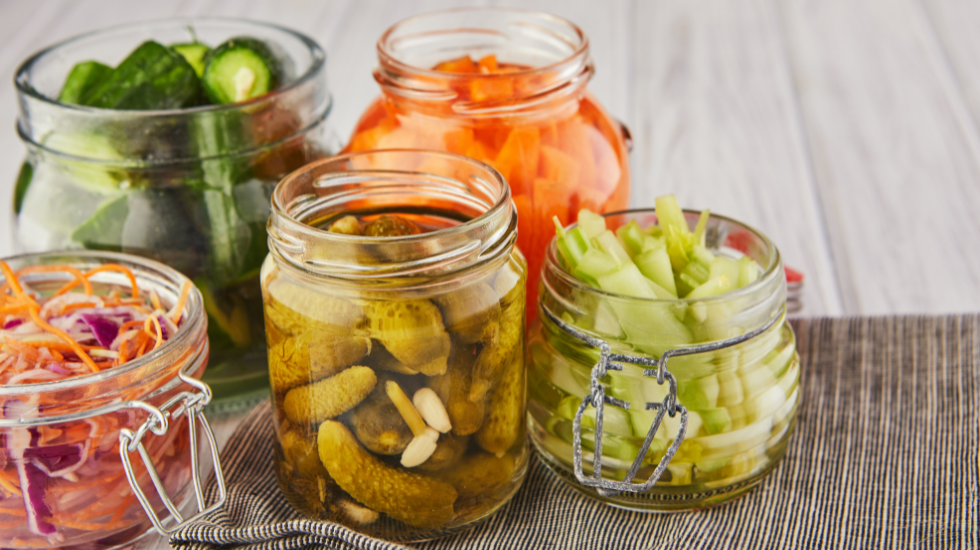
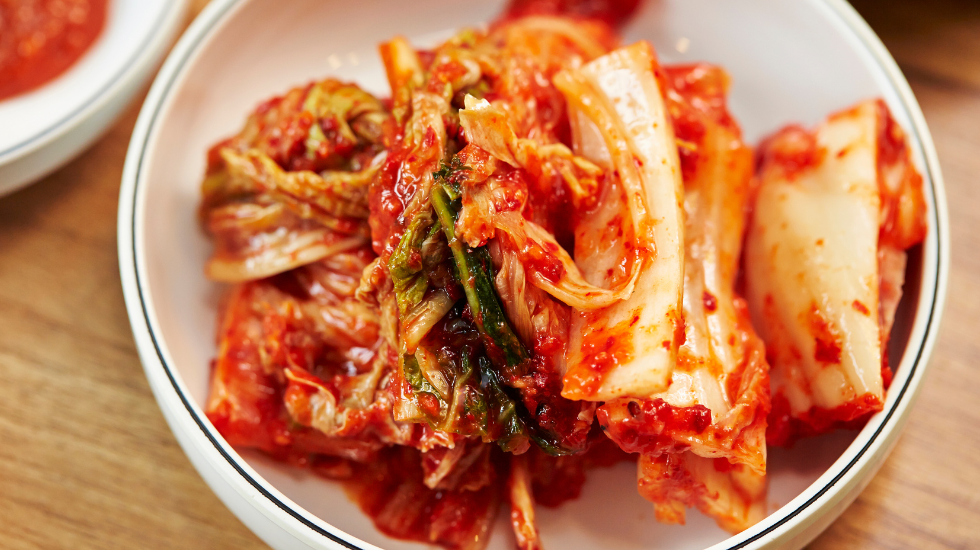
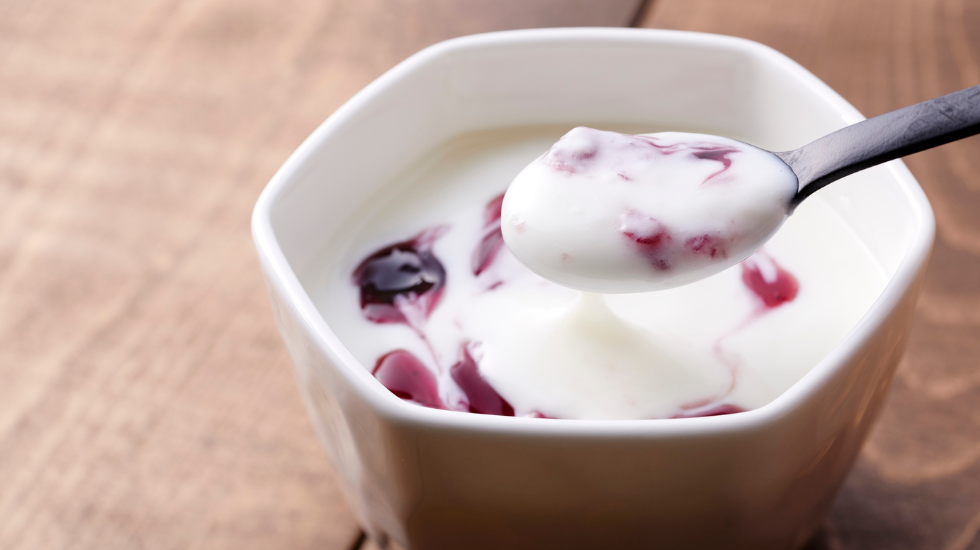
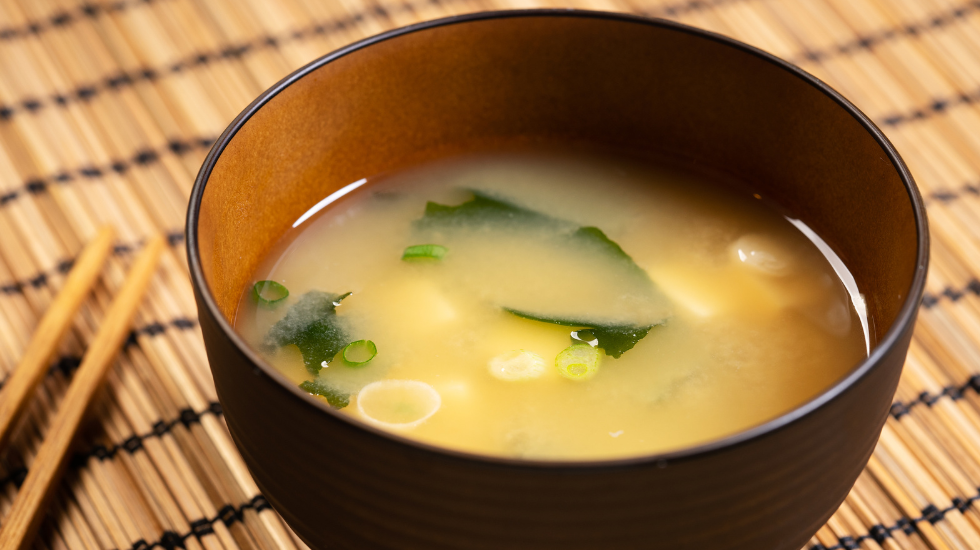
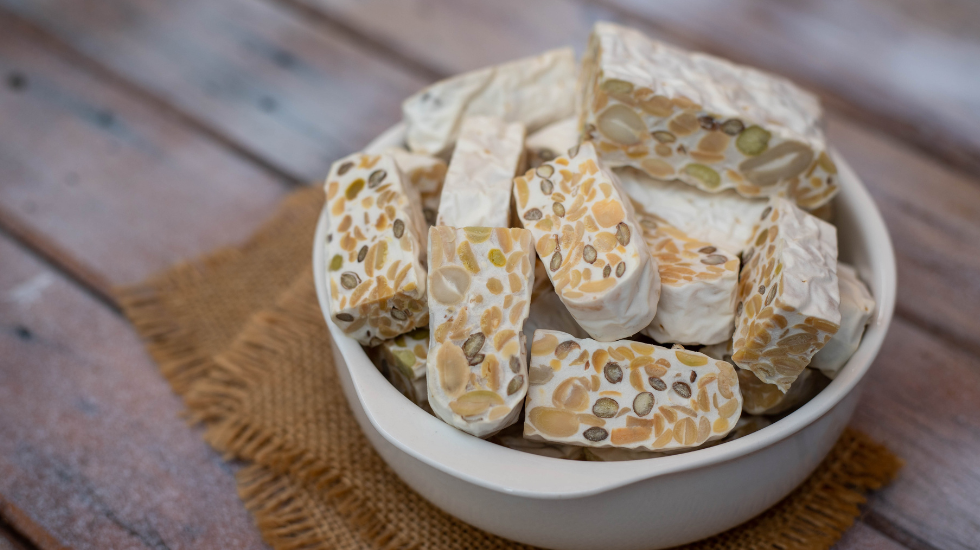
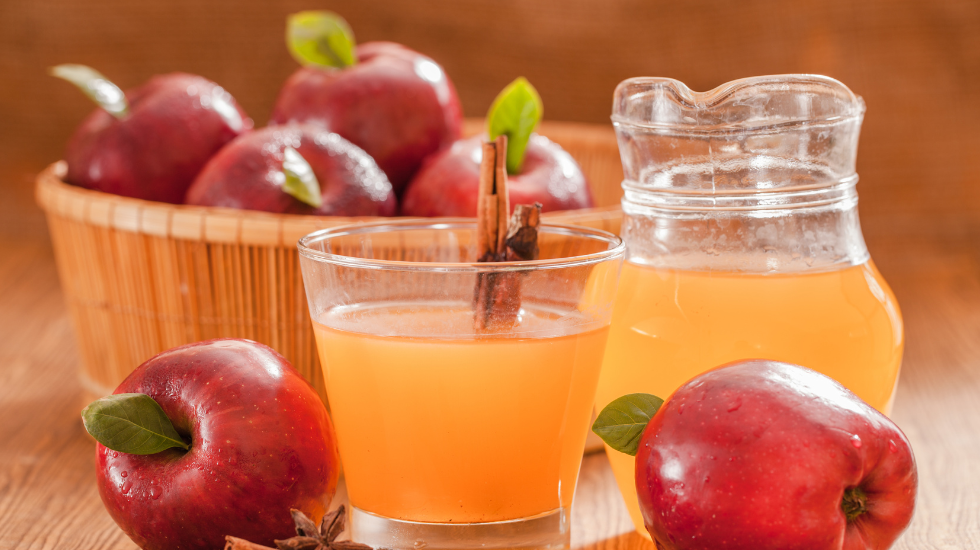
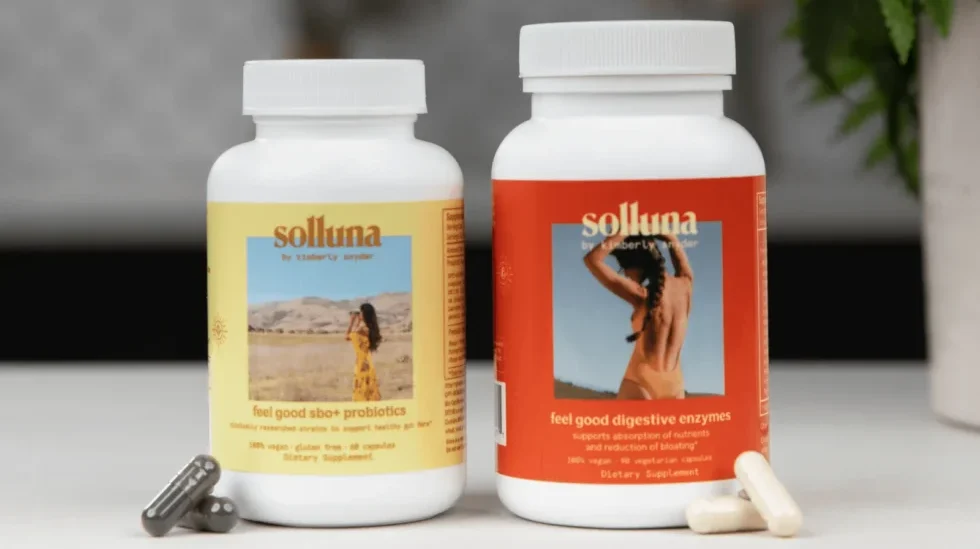


0 Comments